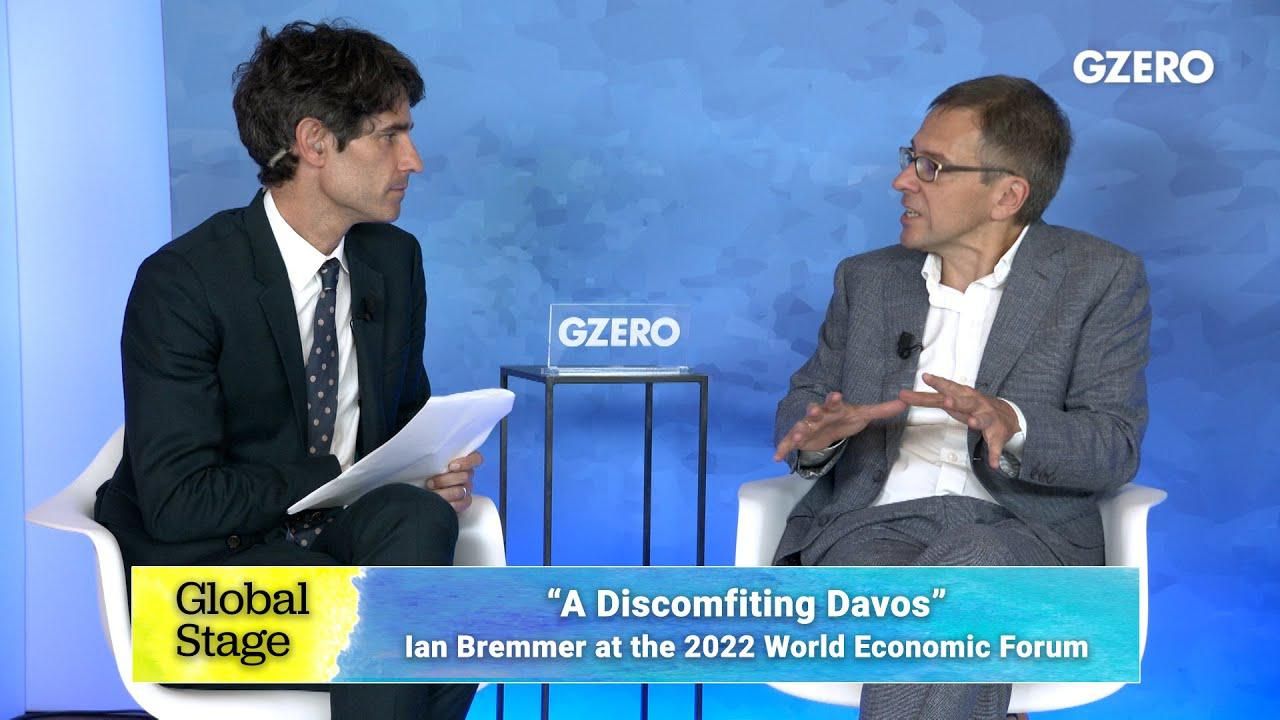Crisis Recovery
Ian Bremmer: Russia's war in Ukraine makes Davos "discomfiting"

Ian Bremmer: Russia's War in Ukraine Makes Davos "Discomforting" | Global Stage | GZERO Media

2022 is the World Economic Forum most driven by geopolitics Ian Bremmer has ever attended.
It's a "crisis-rich environment" with everyone talking about the war in Ukraine, the president of GZERO MEDIA said during a Global Stage livestream conversation hosted by GZERO in partnership with Microsoft.
Ukraine's President Volodymyr Zelensky got a standing ovation after his virtual speech — except for the Chinese delegation. And there were no Russians around in what is supposed to be a global gathering.
What's more, Bremmer said the general feeling is that globalization is unwinding, with Russia forcibly decoupled from the rest of the G20 economies.
"From that perspective, it's a bit of a discomfiting Davos."
Watch more of this Global Stage discussion: "Crisis in a digital world"
China was largely absent from the core conversations at the 2026 Munich Security Conference. That, says Ian Bremmer, is telling.
At the 2026 Munich Security Conference, Brad Smith announces the launch of the Trusted Tech Alliance, a coalition of global technology leaders, including Microsoft, committing to secure cross-border tech flows, ethical governance, and stronger data protections.
Tune in today at 12pm ET/6pm CET for the live premiere of our Global Stage from the 2026 Munich Security Conference, where our panel of experts takes aim at the latest global security challenges. NY Times National Security Correspondent David Sanger moderates the discussion with Benedetta Berti, Secretary General, NATO Parliamentary Assembly; Ian Bremmer, President & Co-founder, Eurasia Group & GZERO Media; Dr. Wolfgang Dierker, Global Head of Government Affairs, SAP; and Brad Smith, Vice Chair & President, Microsoft.